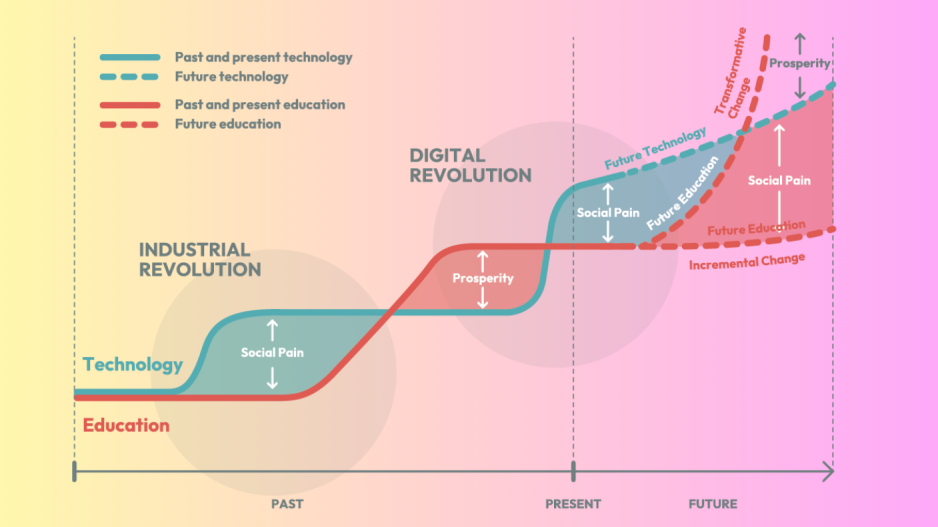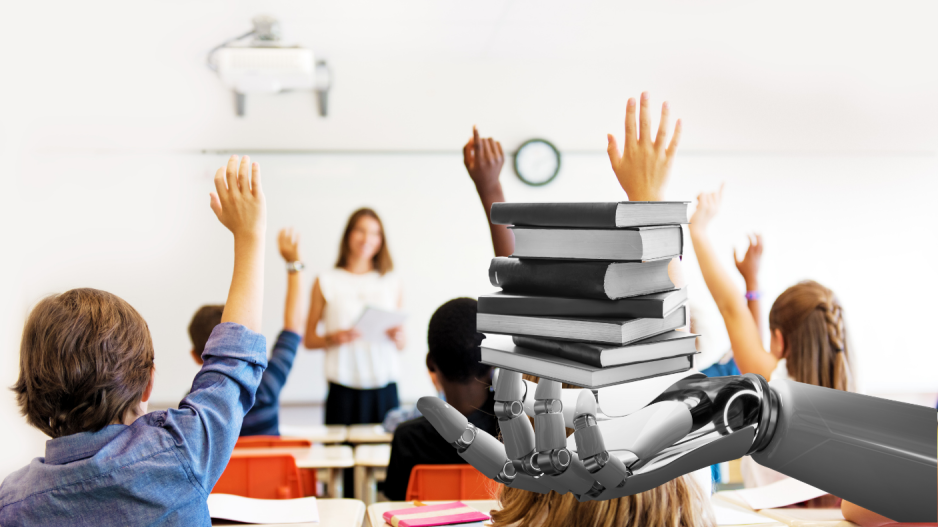Embracing AI in the Future of Education
Students tutored by AI systems have been found to outscore their peers on standardized tests by an impressive 20 percent.
Today’s world is marked by rapid technological advancements, and the field of education stands at an intriguing crossroads. Artificial Intelligence (AI), which has found its way into myriad sectors, now beckons to educators worldwide, offering transformative possibilities. The significance of integrating AI into our classrooms cannot be overstated.
Imagine a world where every student's unique learning style is not just acknowledged but catered to. AI offers precisely this through adaptive learning platforms. These systems help teachers and students overcome language barriers, provide them with an overview of the student’s performance, and enable students to exercise critical thinking rather than solely memorize information.
Shedding light on AI’s impact in education, Christina Shailas, founder and CEO of education technology firm, Gear Education, Cyprus’ first Google for Education partner, spoke at Reflect Festival 2023, offering insights and engaging with the audience’s wonder. Will AI make its way to Cyprus’ schools? And if so, how will it affect student’s proficiency and teachers’ abilities to collaborate and create a cohesive learning environment.
Let’s explore the implications of AI in edtech, and Google’s initiative to develop and provide potentially life-changing technology to educators and learners.
These aren’t mere speculations. According to a report by Nesta titled Educ-AI-tion Rebooted?, AI's potential in the UK's educational landscape could be transformative. The report indicates a possible reduction in teacher workload, a more personalized learning approach, and even a revolution in how examinations are conducted.
A McKinsey study shows that AI-aided educational software can add an extra two months of learning per annum for students. In her presentation, Christina showcased another compelling statistic whereby students tutored by AI systems have been found to outscore their peers on standardized tests by an impressive 20 percent. In fact, seven out of ten teachers have expressed the belief that a uniform education approach, with a single curriculum and teaching method for all, is archaic and unsuitable for the contemporary world.
The power of AI in education doesn’t stop there. The technology is proving invaluable for educators, automating many tasks and allowing teachers to focus on what they do best: teach. Consider this - teachers spend an average of three hours a day on tasks such as grading and lesson planning. AI can significantly reduce this time, giving educators more moments to engage directly with their students.
Yet, with these advancements, come inherent concerns. As history has shown, every technological leap brings with it skepticism and fear. When calculators first made their debut in classrooms, they were viewed with suspicion, with many considering them detrimental to genuine mathematical understanding. Today, calculators are indispensable, seamlessly integrated into the learning process.
Similarly, many fear that AI might replace educators, diminishing the human touch essential for holistic education. Others worry that over-reliance on AI may stifle students' creativity and critical thinking prowess. Some even go as far as to label AI-aided learning as tantamount to cheating.
However, much like the calculator analogy, it is vital to understand AI as a tool – a powerful aide that can enhance the learning environment, not replace it. AI in education is not just about algorithms and data; it's about harnessing these tools to foster richer, deeper, and more personalized learning experiences.
Taking into consideration that as technology continues to advance, it also redefines our lives, our work, and the way we interact. It is essential to keep education’s pace aligned with technology’s growth. David Middlebeck, co-founder of Techlabs, a non-profit technology community teaching and sharing knowledge on digital skills, emphasized this necessity in his TedTalks speech.
He highlighted the development of the printing press and how it accelerated the distribution of knowledge in universities and schools, yet, at the time, few people knew how to read.
“Unfortunately, only a small fraction of the entire population knew how to read, ultimately leading to massive social conflicts and inequity… Well, this happened a couple of times in history. Whenever technology races ahead, it first leads to social pain and inequality, until at some point in time, the whole education system gets turned upside down in order to keep up,” he stated.
As AI tools are continuously being developed and redefining our lives, it is critical to educate not only future generations, but also those currently in the workforce on the AI technologies. Christina placed great emphasis on this point, accentuating Google’s role in offering tools to facilitate the integration of AI in education.

Google plays a critical role in this sector, developing a suite of tools for both teachers and students. Christina showcased the wide array of AI educational technology tools offered by Google for Education, highlighting their extensive use cases and transformative power.
Their Originality Reports leverage the vast power of Google Search, guiding students in integrating external knowledge into their work, while also offering instructors a means to detect potential plagiarism.
Practice Sets in Google Classroom employ AI-generated hints, assisting students in self-assessment and correction. And with tools like Socratic and Read Along, Google is ensuring that AI becomes a tutor and reading companion, offering targeted instructions and reading assistance.
Google Meet features such as automated transcription of video meetings to Google Docs or live-translated captions during video sessions ensure that technology serves diverse learning needs, ensuring no student is left behind.
One of Google’s newest additions to their AI technology suite, Duet AI is now generally available for Google Workspace, offering real-time AI collaboration for its over 3 billion users. This AI tool facilitates easier collaboration by acting as a coach, inspiration source, and productivity enhancer. It can quickly generate summaries and presentations, enhance Google Meet by optimizing video and sound quality, offering real-time translated captions, and automatically taking notes.
As technology surges ahead, it beckons the educational sector to evolve alongside. The dance between education and technology is delicate; when tech outpaces education, disparities arise, but when education harnesses tech, the results are prosperous. By judiciously integrating AI, we can ensure a future where technology and humanity collaborate in a harmonious learning environment, setting the stage for a brighter and more sustainable future.






